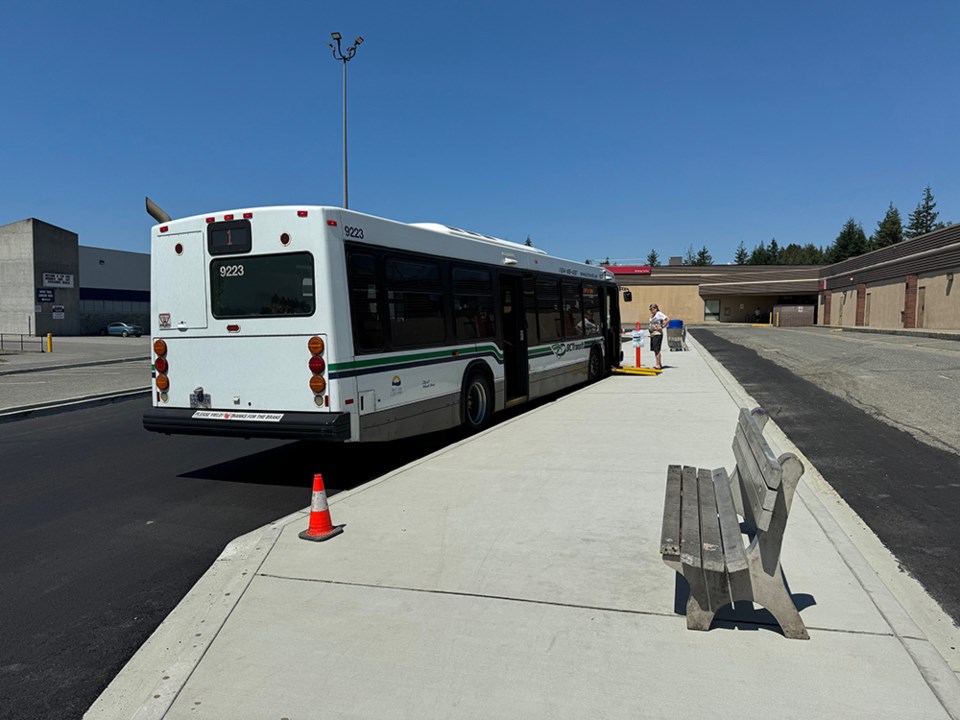City of Powell River Council is endorsing expanded public transit.
At the December 10 special council meeting, city director of infrastructure Tor Birtig said council was to consider the transit improvement program that the city would put forward to BC Transit and the province for consideration. He said in the past year, the city had put forward some additional hours to cover some route management.
“We put that forward to BC Transit, and unfortunately, we were not able to receive the support from the province and BC Transit because the demand exceeded availability of funds,” said Birtig. “This year, we would like to put forward the same hours, with some increases, to include 2,700 hours, as well as three buses to accommodate the increase in service frequency and service span-length on routes one and two,” said Birtig. “Additional hours have also been added to address performance issues so we can provide adequate operator recovery within the transit system.”
Birtig said if the city receives approval, the schedule for implementation would be January 2026, for an estimated net cost to the city of just over $303,000.
He added that the second initiative the city would like to put forward is 2,400 and two buses, which would act as a placeholder, so the city can request provision of some on-demand service through BC Transit in 2026. He said the net cost to the city is estimated at $234,000, which is similar to today’s cost for operating the Zunga Bus service.
“What we are recommending is that council agrees to submit both of these initiatives to this program in the hope we can receive matching funding,” said Birtig.
Rob Ringma, BC Transit senior manager of government relations, said the first 2,700-hour initiative to support routes one and two is supported through Powell River Regional Transit System visioning goals developed by the climate change mitigation and adaptation committee back in 2019. He said COVID-19 hit and the transit world was turned upside down.
“For the last two years, council has endorsed very similar priorities to this one,” said Ringma. “In 2022, Powell River staff worked to pen a transit report that also outlined increasing that frequency along routes one and two. It’s going to increase the frequency of transit service overall between key centres and neighbourhoods. We would work directly with staff to finalize some of those pieces.”
Ringma said for the second 2,400-hour on-demand bus service initiative, it has been put as a placeholder while the 2025 transit service review for Powell River is being completed. He said BC Transit is going to explore on-demand busing options through that review.
“If we don’t put that second initiative in this year, we would have to wait another full year to activate any other initiatives out of the transit service review. That would push it to 2027. I know this council has had quite a bit of debate around on-demand service.”
Councillor Earl Almeida asked if there was a chance that the two options discussed would not come through.
Ringma said the way the BC Transit improvement process works, based on the BC Transit Act in the legislative funding formula, is, BC Transit needs to seek approval from local governments first for the cost of these initiatives, and then the initiatives across the province are summed up into the total service plan request to the province for matching funding. He added that BC Transit waits until the provincial budget is tabled in February or March, and then Ringma will be able to reach out to city staff and let them know about the success of procuring the hours and buses requested.
Councillor and acting mayor George Doubt said he had read in a staff report that the increase of 2,700 hours would result in an annual $32 increase in taxation for an average single-family residence. Chief financial officer Mallory Denniston said that was correct.
Almeida made a motion that council direct staff to sign the BC Transit Powell River Transit proposed expansion memorandum of understanding [MOU] dated October 1, 2024, and that council amend the city’s five-year financial plan bylaw 2742, 2024 to include $303,158 starting in 2026, for an additional 2,700 hours of service and three expansion buses to accommodate an increase in service frequency and service span length on routes one and two, and that council provide an additional 2,400 hours and two buses as a placeholder to implement strategic priorities as identified in the 2022 service discussion document memo, which could include on-demand service in 2026, at an estimated net municipal cost of $234,094.
The motion carried unanimously.
Join the Peak's email list for the top headlines right in your inbox Monday to Friday.



